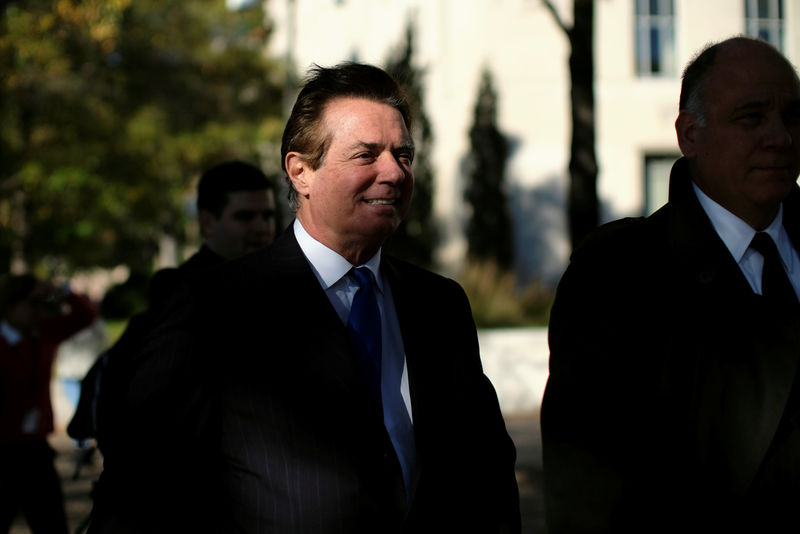By Ginger Gibson
WASHINGTON (Reuters) - An industry group for lobbyists on Tuesday called on Congress to overhaul the transparency laws that govern their activity in the wake of indictments of two lobbyists, including Paul Manafort, a former campaign manager for U.S. President Donald Trump.
Charges filed by Justice Department Special Counsel Robert Mueller alleged Manafort and business partner Rick Gates failed to properly disclose lobbying for a foreign government.
After the indictment was made public, Washington lobbyist Tony Podesta, a longtime powerbroker, stepped down from the firm bearing his name as the company came under scrutiny in the investigation for work it did with Manafort.
“Today is another unnecessary black eye for the lobbying profession," said Paul Miller, a lobbyist who heads the National Institute for Lobbying and Ethics (NILE). "The indictments of Paul Manafort and Rick Gates should send a message to the lobbying profession that this type of activity cannot be tolerated and to Congress that its time to take a hard look at the (Lobbying Disclosure Act)."
Manafort, a longtime Republican operative, and Gates pleaded not guilty on Monday to a 12-count indictment that contained charges ranging from money laundering to acting as unregistered agents of Ukraine’s former pro-Russian government.
NILE has previously encouraged Congress to close loopholes in the Lobbying Disclosure Act, known as LDA, to make lobbying more transparent by subjecting more activity to disclosure and requiring lobbyists to reveal when an intermediary hires them on behalf of another organization.
Two separate laws require lobbying disclosure: The LDA, which covers domestic interests, and the Foreign Agents Registration Act, under which Manafort was charged and requires disclosure for lobbying on behalf of foreign entities.

“Today, we hear the echoes of crickets when we go to the Hill asking for reforms that will have a direct and immediate impact," Miller said.